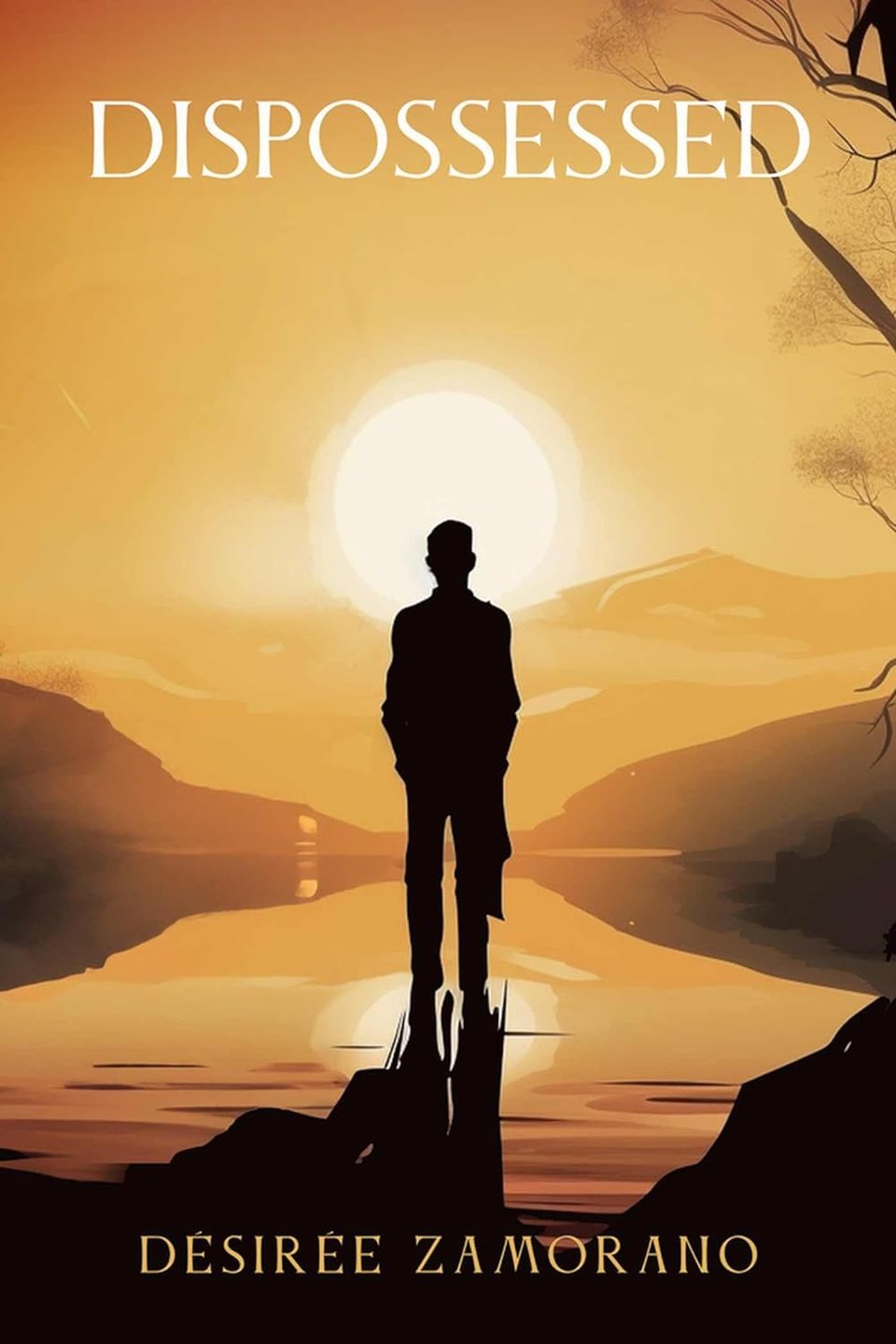Dispossessed: An Excerpt

Today we're honored and delighted to run an excerpt from Désirée Zamorano's recently published novel Dispossessed, a work of historical fiction that is nonetheless devastatingly timely. You can purchase the book here, here, or here. Desiree introduces her work below:

As Donald Trump and J.D. Vance slash and burn their way toward the November presidential election, the Republican party has campaigned on a platform that promises to expel 20 million people. What most Americans fail to realize is that this kind of xenophobic barbarity has, on a smaller scale, happened before. Beginning in the 1930s and continuing into the 1950s an estimated 2 million people— Mexican Americans and Mexican nationals—were “repatriated” from the United States. A low estimate is that 600,000 of those people were U.S. citizens. Yes, U.S. citizens. It’s like a Stephen Miller fever dream, drawn from our little-known, forgotten history. The horrific destruction of lives is terrible to imagine.
How dare we consider doing this again.
At California State University Long Beach I teach this and other hidden histories of our country to aspiring teachers because as a nation we must acknowledge and teach our past. Not the Disney version, but our actual history.
My novel, Dispossessed, based on the historical record, follows the life of one boy, Manuel, separated from his parents and sister in the 1930s, determined to find out what happened to his family, while making a life for himself in his native country, the United States.
— Désirée Zamorano

CHAPTER ONE
1939
Manuel shrieked against the waves as he and his big sister went further into the water. Lulu clutched his hand. He braced himself against the next wave and felt the cold water collide against his body. The sand sucked at his toes as the water retreated. They danced on the receding foam, Manuel following wherever Lulu led. Another wave crashed against them, then pulled him farther into the ocean.
Lulu shrieked and laughed. Manuel laughed until a wave of water pounded against him. He lost Lulu’s hand, fell into the sea, and panicked, lost, airless, until his father hoisted him up, patted his back, and swung him around.
“You’re an airplane,” his father said.
The beach, the sun, the waves were a blur, and he was flying!
His father set him down again, dizzy, unsteady, as a wave headed toward- Manuel. This time he looked away from the sun, buried his head in his father’s trunks, clutched his father’s leg, which stood steady and firm.
“It’s okay, I’m here, Manolito, I’m here with you,” his father said.
“Lulu!” he shouted. She wasn’t here anymore, where did she go? He spotted her in her red and white polka dot swimsuit, digging on the beach. He ran to help her dig a hole. Sand crabs appeared, then burrowed into the slick sand, leaving bubbles behind. Manuel dug and dug, catching them to watch them burrow into the sand again.
His sister grew bored and ran to their parents. “Wait!” he said, “Lulu!” She kept running and laughing as he chased her.
“Manolito,” his mother laughed, “You are a fish, let me catch you!” She held out a towel and wrapped him in it.
***
Two men stood in their home. There was crying. Who was crying? Was that him? Was that Lulu? Lulu, his sister, hugged him tight, whispered to him, held his hand, tugged him alongside her, and told him they were police officers. Why were there police officers? Where were their parents? The men spoke to each other while Manuel wrapped himself around Lulu. She wore a gray dress with a black bow and a sweater their mother had knitted for her. He touched his own sweater, remembered that their mother had made this for him, too. Lulu smoothed down his hair, her black hair was brushed out and fell straight against her shoulders. She dressed him, looked for their night clothes, and placed them in a cloth bag. Everything looked wrong, blurry, out of place.
Lulu understood what the men, the police, said, but he did not. Their words sounded harsh and ugly, like their faces. He and Lulu slid across the slick backseat of a car. The police officers’ car. The seat was cold against the backs of his legs, exposed in his short pants. The car smelled of cigarette smoke and sour milk. In the car he and Lulu held hands, her nails jabbing into his palm, her teeth colliding, chattering. Where were they going? Where were his parents? Were they going to be with them?
The same disquieting odor of the car followed them into the house where they were led, while a small dog yapped angrily at them. Manuel’s ears were assaulted. Like the car, the house smelled wrong, unfamiliar and unwelcoming.
In this house of strangers, they gave him clothes which scratched at him and smelled of someone else. Lulu came over and laughed and bounced on the bed, making the springs sing, and he laughed, too. Lulu’s large brown eyes brimmed luminous. She wore her own nightgown, flannel, soft, and faded.
If she laughed, he laughed, if she cried, he cried, if she was going to brave, he could be too.
Lulu put her arms around him and prayed and told him to repeat what she said. Normally their mother prayed with them at bedtime, but she was not there. Manuel listened to Lulu and repeated what she said that night as best as he could.
The two of them moved from home to home together. “I want to go home,” he told Lulu. “When do we go home?”
When she said, “I don’t know,” he felt as if he was underwater. For a moment he was unable to see or breathe, airless in darkness. Only when Lulu was with him, her hand in his, her arm around his shoulders, was there any light or warmth in the world.
He caught his breath with a sob. “Where are we?” he asked her. “Where are Mami? Papi?” Why did they leave?
She bit her bottom lip and said, “I don’t know.”
They met strangers. They slept in strangers’ homes, sometimes in the same room as their children. Other kids who looked at them with big eyes. Manuel didn’t understand what the kids said, but Lulu answered them. Then a new home. The strangers always seemed to like Lulu because she understood them. Manuel stood behind her.
One day Lulu hugged him tight, crushing him against her. Little tears of hers fell down her face as she said, “Portate bien, seas un buen niño, seas mi hermanito, valiente y bueno.”
He promised her he would be good. He promised her he would be brave.
She kissed him and hugged him and then she was gone.
His sister’s warmth, her sunshine, vanished. The ocean water was everywhere now, filling every room and corridor, every crease and seam, his eyes, his body. When he could make out shapes and images, he found himself by a murky swamp, filled with mud and quicksand. His feet dragged through mud; his body waded through deep water. He slept on the bottom of the sea. He awoke to baying wolves and strangers. He called for Lulu. He cried for his parents.
The Sword and the Sandwich is a newsletter about deadly serious extremism and serious sandwiches. Please consider supporting this work with
a paid subscription.

Los Angeles born and raised Désirée Zamorano is the author of the groundbreaking, family saga, historical fiction novel Dispossessed. Her highly acclaimed literary novel, The Amado Women, will be re-released in 2025. An award-winning and Pushcart prize nominee short story writer, her work is an exploration of where cultures collide and connect. The University of Nevada will publish a collection of her stories in 2026, while a selection of her work can be found in Alta, The Kenyon Review Online and Akashic’s South Central Noir. “Caperucita Roja” was chosen as a distinguished short story in Best of American Mystery and Suspense 2022.

-
Joan Baez wrote a song about this:
https://youtu.be/mmN2nodeHuk?si=6Jfo_42UMvVABULT
Actually, Woody Guthrie wrote the song. :)
Add a comment: